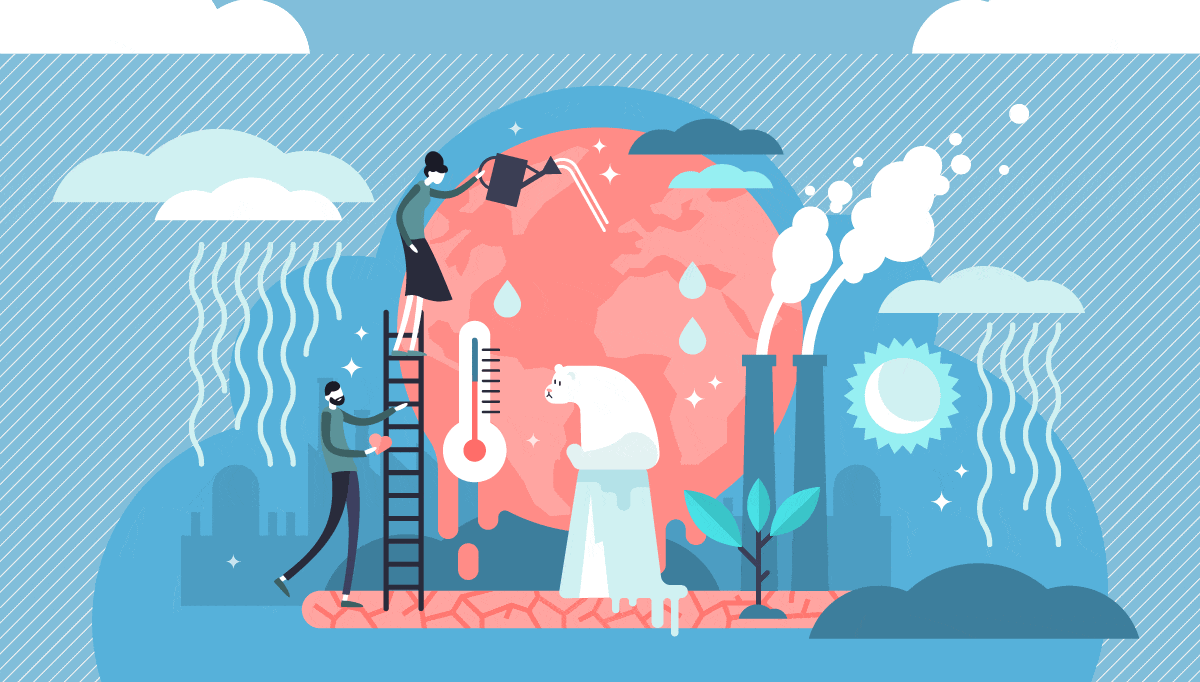The interventions of Green Building Councils (GBCs) for environmental, economic and social sustainability in construction. And a reflection on the role of citizens.

Some time ago, two words burst onto the scene in media communication and advertising: the word "sustainability" and the word "future".
The motivation to take care of the future has also come out of the pandemic: it has spread the idea that tomorrow will be different from the past, with many more unknowns, and that it will require new behaviours.
Sustainability should be the cornerstone of these behaviours, and countless products and services are being offered that guarantee this feature. After all, the sharp increase in news stories on climate change in recent years has made people much more aware of the need for sustainability.
All of the surveys tell us that the majority of the public is worried about the climate crisis, even though they may not be sure what needs to be done.

The problem is that we are lacking essential information needed to outline a sustainable future. We have a compass, represented by the UN 2030 Agenda, with its 17 Sustainable Development Goals and 169 targets measured in all the 193 UN countries that signed the document in 2015. If these Goals were all achieved (however, unfortunately this won't happen), the world would certainly be in a better condition to face the future. But even so, we would not be sure that humanity could face the crisis of the first half of the century without dramatic changes in its level of civilisation.
Indeed, we are moving through uncharted territory, without knowing if we have already exceeded the limits, the so-called tipping points, beyond which it is no longer possible to turn back.
I will explain with two examples.
The first regards the climate itself. The global commitment, coming from the 2015 Paris Agreement, is to keep the rise in global temperatures to within 1.5 degrees, but people are already saying that it will be difficult to stay within two degrees, and that we are in fact currently on track for three. But here we are not talking about linear phenomena: an increase of three degrees doesn't have twice the effect of an increase of one and a half degrees, but it could trigger new phenomena, such as the melting of the permafrost at arctic latitudes, or changes in ocean currents, with much bigger effects on the living conditions of the planet.
The second example regards our use of resources. The calculation of Earth Overshoot Day tells us that each year we are already consuming almost 70% more resources than the earth can produce in that year. In 2050, the global population (currently around 7.8 billion) will exceed nine billion. We hope that all of humanity will have been lifted out of poverty, and, in fact, according to the World Bank's calculations, the so-called middle class - those earning between ten and one hundred dollars a day, currently made up of around two billion people - could exceed five billion. All this predicts a boom in consumption: cars, meat, energy to satisfy growing demand. How to reconcile this increase in demand with the limits of the planet is one of the great unresolved questions to face in the coming years.

The gamble we are faced with involves everything: politics, corporations and finance, civil society, individual behaviour.
The business world is seriously considering the problem, for its own survival. So-called "non-financial reporting" is becoming widespread: financial statements that take account of companies' responsibility towards stakeholders (employees, consumers, local communities, environment) according to the "ESG" criteria - Environment, Social, Governance.
Even finance is changing its priorities: many investment funds are choosing to no longer finance the production of fossil fuels, while green bonds are becoming more popular: obligations linked to "green" behaviours, including the first issuance of European bonds to finance Next Generation EU.
The hardest knot to unpick, however, is politics. Truly facing the challenges of sustainability means looking at the problems with a medium and long-term vision, and even making unpopular decisions. For example, the mitigation of climate change entails a large commitment to developing countries, which need to grow, and will therefore increase their energy consumption. In order to avoid this situation turning into a rise in greenhouse gas emissions, it is necessary to help these countries choose cleaner sources, even if they are temporarily more expensive, with substantial transfers of funds and technology. To this end, for years the richest countries have been promising to finance a Green Climate Fund with 100 billion dollars per year, and this commitment was also reaffirmed on the occasion of the summit in recent weeks, but the Fund's financing is seriously behind targets.

Grassroots pressure, coming from organisations of civil society, young people, public opinion, are certainly useful in accelerating change.
However, we need to ask ourselves if this pressure is the same as being effectively willing to accept the sacrifices and changes in consumption imposed by the creation of a sustainable world. The ecological transition (which includes both energy and a different way of treating the planet's resources) is necessary, but it is not necessarily fair from a social point of view.
For example, a rise in prices caused by a "carbon tax", which taxes goods and services in relation to the emissions required to produce them, would hit primarily the most vulnerable social groups.
An effective strategy for the transition must therefore be reflected in effective measures, but also requires the ability to hold onto social consensus through choices that reduce inequality, and adequate communication.
The interventions of Green Building Councils (GBCs) for environmental, economic and social sustainability in construction. And a reflection on the role of citizens.
Focusing on design for human diversity, social inclusion and equality. Because true social sustainability must mean wellbeing for every person.
